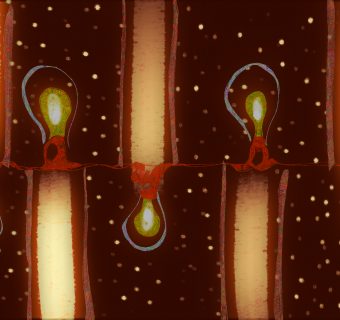Story By: Lilly Patterson
What’s the first thing that comes to mind when you hear the word ‘burnout’? I’d venture you have a general concept of what it is, but perhaps you don’t believe it applies to you. College students, particularly at UVA, not only take in but also perpetuate the stereotype that as young 20-somethings, we can afford to be running on all cylinders at all times. Time and time again, whether we read it on the ubiquitous Stall Seat Journals or hear it from our variety of advisors, we’re told that along with school, family, friends, and extracurriculars, we need to ensure good sleep, nutrition, exercise, and perhaps read a novel or throw in a transcendental meditation session. (While remaining entirely casual about it, no doubt.) Despite these encouragements, it’s safe to say that most of us are lacking in more than one of these areas. Here’s the kicker: I’d argue that students here are in a veritable burnout competition. Yep, that’s right. Think about the number of times someone has started a conversation with talking about how little sleep they got. 3 hours, you say? Suddenly, an interloper follows up with cries of their two-hour sleep. Another, perhaps, interjects with the home run: an all-nighter. How about another example? You have two interviews this week, one with J.P. Morgan and the other with Capital One. But alas! Your classmate Cooper has six and three midterms.
about it, no doubt.) Despite these encouragements, it’s safe to say that most of us are lacking in more than one of these areas. Here’s the kicker: I’d argue that students here are in a veritable burnout competition. Yep, that’s right. Think about the number of times someone has started a conversation with talking about how little sleep they got. 3 hours, you say? Suddenly, an interloper follows up with cries of their two-hour sleep. Another, perhaps, interjects with the home run: an all-nighter. How about another example? You have two interviews this week, one with J.P. Morgan and the other with Capital One. But alas! Your classmate Cooper has six and three midterms.
In all seriousness, this structure is far too common within the UVA community. Trying to top one another’s levels of exhaustion, anxiety, or another of the multitudinous afflictions that students deal with is a dangerous game, especially in the long run. Burnout doesn’t just exist here in the UVA vacuum- It is pervasive and malicious, extending far into adulthood until retirement. Clearly, the physical detriment of burnout is well-documented, including (but not limited to) serious sleep deprivation; depression and anxiety; substance abuse; and relationship and communication difficulties. We know these are all bad things. But what does burnout mean for us as human beings, particularly when we’re competing to see who can be the most mentally fried and zombified? It can mean forgetting why you’re here in the first place. Why did you want that grade? Why are you applying for that job? Do you really want to be a University Guide, or did you just feel like you had to compete? What happens when you let your exhaustion, unending commitments, and desire to compete affect your relationships? If the only context in which you’re seeing your friends is weekend nights spent decompressing at bars and parties, are you really benefiting from the true value of those relationships? (Be honest – probably not.) Aside from restorative time spent alone, relaxed time spent surrounded by your friends is what keeps us all sane. Fostering relationships with those you care about grounds you. It offers you the opportunity to build compassion, respect, and love within your life, without the crutch of alcohol, the necessity of being in a library, or working in an organization together to construct social space. At its core, making time to call your family or see your friends – and doing so autonomously and willingly – is what ensures you’re giving and receiving the full benefits of being human. Burnout can cause depreciation of relationships, and not just your relationships with others. Pushing your body to the breaking point not only elicits physical and mental repercussions, but also emotionally. If you’re so busy trying to see how thin you can spread and how frayed your ropes can be, are you really paying attention to how you feel in these moments? Are you denying yourself the time to realize what makes you happy, or frustrated, or angry? Are you becoming numb through trying to reduce your personhood to what looks impressive on paper, or what appears good to everyone around you? If anything, you must ask yourself if what you’re doing here is for you, or for everyone else. If you can look at any aspect of your life and find that the sole justification for perpetuating that reality is to please someone else, you’re doing it wrong. (Of course, you can do things for others, but only if that’s what you really want and need to be doing.) A mentality of quantity over quality can only take you so far. The next time you see someone look at you with combative expectation and hear them say that they’ve only eaten once today, or perhaps haven’t seen the sun from anywhere but Clem 1 for the past week, stop. Resist the urge to duel and deal in burnout. Instead, ask yourself what you have done lately that made you feel truly happy and whole. Through these small shifts in response, perhaps you can change your own perspective on what you really want.







